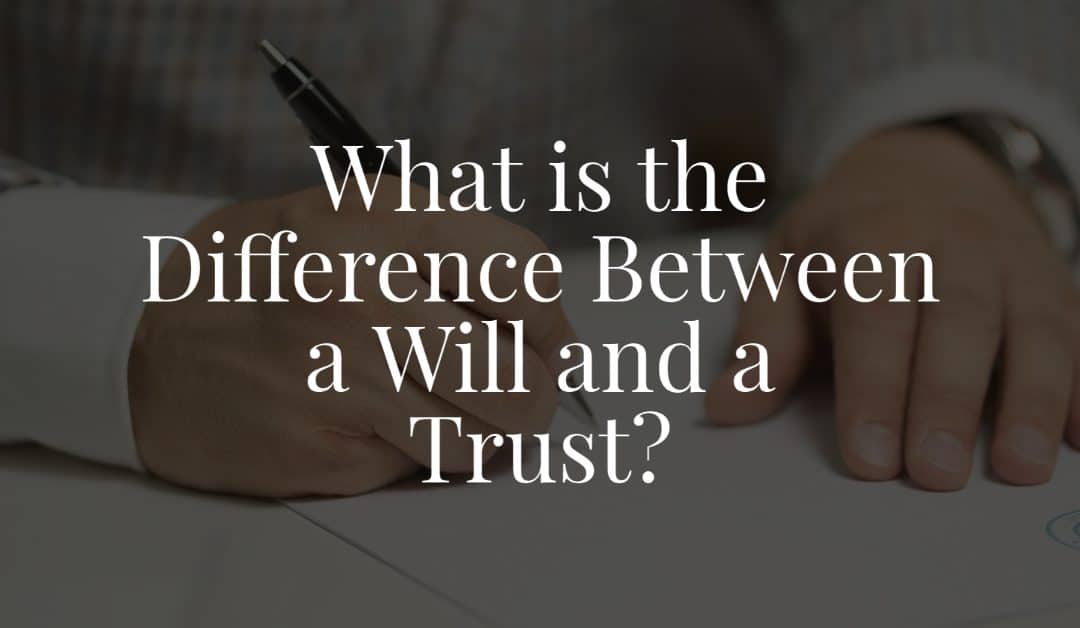Most people have heard of wills and trusts but are not fully informed of the basics of these
important documents. The information below will describe the basics of a will and trust.
Will
A will is a written document that is signed and witnessed. A will is considered a “death”
document as it only becomes effective when you die.
A will:
● provides for the division and gifting of assets at death, but keep in mind that any accounts
or assets that have a beneficiary option will not pass through the will (e.g. life insurance
or retirement benefits)
● sends assets that do not have designations and that are owned solely by you, in your
individual name, through the probate process
● allows you to designate individuals to serve as guardians for your minor child
● Allows you to name the person you designate to handle your final affairs (e.g. executor or
personal representative)
● may be cancelled or modified at any time during the lifetime of the testator
● Does not always include protective trusts for your beneficiaries and tax planning because
many wills are simple documents
● In general a will is less expensive than a trust but may cost more to settle during court
proceedings after death
Trust
A trust (specifically, a revocable living trust) is a formal relationship where the
trustmaker names a trusted individual (trustee) to manage assets for the benefit of the trustmaker
and others (beneficiaries). Since the trust is effective during the trustmaker’s life, it is often
referred to as a living document.
A trust:
● provides for the division and gifting of your assets
● avoids the need of the probate court if the trust is fully funded
● provides for a successor trustee upon the death of the trustmaker or if the trustmaker is
incapacitated
● provides for the continuous management of assets – even if the trustmaker is still alive
but is unable to manage assets.
● often includes protective trusts for your beneficiaries and tax planning
● may be cancelled or changed anytime during the trustmaker’s life.
● Upfront costs are more than a simple will but may cost much less upon administration
The Probate Process: A Key Element in Deciding Between a Will and Trust
One key consideration when deciding between a will and a trust is the probate process. The term
“probate” refers to the process in which a deceased person’s will must be validated, outstanding
legitimate debts are paid, and the remaining assets are transferred to the designated beneficiaries.
The probate process can be lengthy taking years to complete in some circumstances. Probate can
be an expensive and time-consuming process that is public, meaning your nosey neighbor Nancy
could find out exactly who got what and how to contact the recipients. In most cases, the only
benefit of probate is that once the process is officially closed, claims made by creditors are
permanently cut off.
● Probate Guaranteed. If you use a will as your primary estate planning tool, and you
own property in your individual name, probate is guaranteed.
● Probate Avoided. If you use a trust as your primary estate planning tool, the accounts
and property are owned by the trust, not you, avoiding probate – saving your family time
and money.
How Does One Decide Whether to Use a Will or a Trust?
Everyone’s situation is different, it is important to consider the facts of your situation along with
what the future may hold so that you can determine what is right for you and your family.
Whether clients wish to avoid probate, provide a plan in the event of incapacity, or create trust
protections, we have found that most clients receive the greatest overall benefit from having a
trust.
Without an estate plan in place, you and your family are left completely unprotected. Call our
office now to schedule your in-person or virtual meeting. Our attorney will help you determine
whether a will or a trust makes sense for your situation. You do not have to make these decisions
alone.

